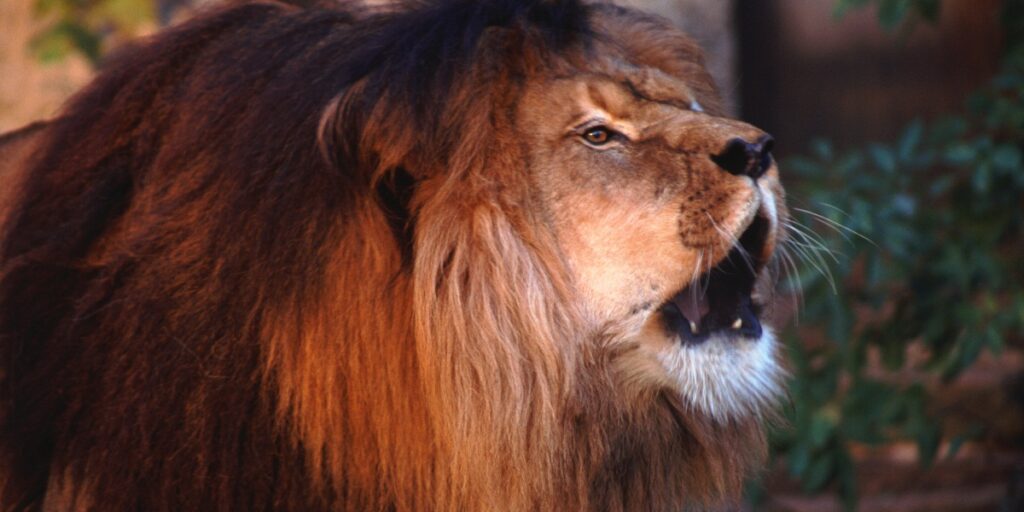The presence of their manes quickly identifies male lions. But did you know that there are a handful of lions who no longer have them or never had them at all? Let’s talk about them.
Many lions do not have manes or some with less pronounced ones. Hormones play a vital role in this. A castrated male lion will eventually lose its glorious mane because of the lack of testosterone.
What Are Manes For?
The function of a lion’s mane is similar to that of a peacock’s marvelous tail. The darker and the longer the mane is, the more powerful the lion is known to be in the pride. Thus, a prominent and dark mane lion would attract more females than those with thinning and light-colored ones.
It was initially assumed that manes were used to protect their necks during battles with other lions. But this has been disproven by animal experts who noticed that lions fight by attacking the hips and back of their opponents. What they did observe is that the color and size of the mane indicate their strength. (Source: World Atlas)
What is the Role of Testosterone on Lion Manes?
Much like other animals, genetics, hormones, and the environment play an essential role in developing certain features lions have. According to researchers, testosterone is vital in the formation of a mane. When a lion is castrated, it will not be able to produce enough testosterone to maintain its mane. They will end up losing it eventually. (Source: World Atlas)
Can Female Lions Develop Manes?
Since the growth of the mane is attributed to the presence of male hormones, the question is, if a lioness possessed testosterone, would she develop a mane as well? In the National Zoological Garden in South Africa, a female lion named Emma was able to develop a mane.
Caretakers at the zoo had tests done, and it revealed that Emma had a high amount of testosterone in her system. This was due to issues with her ovaries. They operated and removed her ovaries, and she changed back to a typical lioness.
There have been other cases where lionesses have high levels of testosterone. Aside from growing manes, they were unable to produce cubs. Other cases were just more than a hormonal imbalance; the phenomenon is noted to be a hereditary issue. (Source: World Atlas)
Can the Environment Influence the Type of Mane A Lion Grows?
The quick answer to this is, yes, regional differences have a hand in the existence of manes. Researchers observed that lions that lived in Asia had shorter manes compared to those in Africa. Aside from the difference in weather and humidity, the environment also affects the length of the mane. Because African lions lived in savannahs, their manes can grow longer than those that live in forests.
Asian lions in the Gir Forest in India are noted to have darker manes, and African lions have lighter colored ones. Scientists truly believe that aside from biological factors, the environment influences the physical appearance of the lion. (Source: World Atlas)
